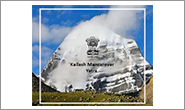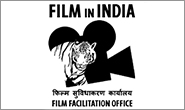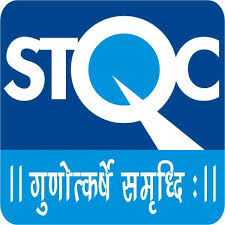Speech of the Defence Minister Shri Manohar Parrikar at the Shangri-La Dialogue 06/04/2016
Following isthe full text of the speech of the Defence Minister Shri Manohar Parrikar atthe Plenary Session II: Managing Military Competition in Asia, at theShangri-La Dialogue in Singapore, today: -
“I thank theorganisers, the International Institute of Strategic Studies and the Governmentof Singapore, for inviting me to address this year’s Shangri La Dialogue.
Before Icommence my comments on the subject for this Session, a disclaimer is perhapsnecessary. For India, located as we are at the centre of the Asian landmassastride the Indian Ocean, any reference to Asia implies its fullest geographyranging from the Suez to the shores of the Pacific.
This is avast area with many complexities.
As we areaware, large parts of West Asia have been grappling with a new and dark variantof violent conflict.
Closer home,to India’s west, the brave Afghan people continue their efforts to revive theirnation and rebuild their state in the face of terrorists nurtured in theneighbourhood.
Today, Iwill, geographically speaking, limit myself to what is now aptly andincreasingly referred to by the strategic community as the Indo-Pacific.
I come froma coastal state of India. It is natural for me to have a bias towards themaritime domain. Seriously speaking, this is also the domain of India’s “ActEast” policy in all its dimensions – cultural, economic and security.
Ladies andgentlemen,
The theme ofthis session suggests that we are confronted with a new challenge. A broad lookat trends in the region suggests that countries in the Asia-Pacific are spendingmore on defence. If you look at recent figures, Australia, China, India,Indonesia, Japan, Philippines and Vietnam, all appear to be spending more onmilitary capabilities.
A closerlook suggests the picture is more complex. In some cases, there is acatching-up happening after years of neglect of capital expenditure in defence.In other cases, there are new challenges and new roles for the armed forces.
Regardlessof what view we take, I believe that we cannot reach a definitive conclusionthat we are witnessing emerging military competition in the region based onfigures of military expenditure.
What reallymatters is the manner in which military capabilities are developed and how theyare deployed. These two aspects – you may simply call them transparency andbehaviour - are perhaps more important than expenditure alone.
This is notto dismiss the challenge. Given the destructive nature of current militarytechnologies, it is obvious that we should take any signs of an Asia-Pacificwide military competition seriously.
However, Ibelieve that we should stay focused on the equally important challenge ofcreating and nurturing frameworks to manage security issues. These frameworksshould promote transparency as well as the right behaviour. They should help usbuild mutual trust and confidence to avoid conflict.
Ladies andgentlemen,
Scholarstend to divide security challenges neatly into traditional and non-traditionalsources of insecurity. I am a practitioner. For me a traditional threat is oneof low probability but high impact risk. Non-traditional threats arecontinuous, daily occurrences and their impact can vary from the negligible tothe dramatic.
In somecases, terrorism being the most serious example, the distinction is literallyacademic.
In my viewthere are three main security challenges facing the region.
First, thetraditional threat of disputes over territorial issues escalating to militaryconflict. The way forward here is for the parties to these disputes to renouncethe threat or use of force against other states.
While nosingle region has a monopoly on nationalist rhetoric, we need to pay specialattention to its linkages with territorial disputes and alternate readings ofhistory in this part of the globe. Regional frameworks for security managementmust enshrine a commitment to the peaceful resolution of disputes without thethreat or use of force.
Second, evenif you wish to describe it as a so-called non-traditional threat, terrorismremains the foremost challenge to our region. Networks of radicalism andterrorism as well as their support structures in the region and beyond continueto pose a threat to all peace-loving societies.
We need tooppose terrorism resolutely everywhere, de-legitimise it as an instrument ofstate policy and cooperate unreservedly to locate, thwart and destroy terroristnetworks. The security frameworks in our region still do not give enoughattention to terrorism. This must change.
The thirdchallenge arises in the maritime domain, which is a key enabler of ourprosperity. It is in this domain that we see most clearly a continuous spectrumof threats.
By virtue ofits geographical location, the Indo-Pacific is the crossroads of the world’smaritime traffic. Over half of the world's commercial shipping passes throughthese waterways. The Strait of Malacca alone carries approximately 25% of alltraded goods and all oil that travels by sea. At its narrowest point just southof Singapore, not far from where we are meeting today, the Strait of Malacca isonly a few nautical miles wide, making it one of the world's most sensitive andstrategic waterways.
And thesewaterways are vulnerable. Terrorism visited us from the sea in Mumbai inNovember 2008. Piracy on the Eastern shores of Africa impacted the insurancepremiums for all our ships. At the other end of the spectrum, the situation inthe South China Sea continues to be viewed with concern.
We havetraditional links with the countries in the South China Sea. More than half ourtrade passes through its waters. While we do not take a position on territorialdisputes, which should be resolved peacefully without the threat or use offorce, we firmly uphold freedom of navigation and overflight in accordance withinternational law, in particular the UN Convention on the Law of the Sea.
Allcountries in the region need to recognise that our shared prosperity and theenviable rates of growth that we enjoyed over the past decades will be put atrisk by aggressive behaviour or actions by any one of us. All of us willsuffer, irrespective of whether we are big or small states. We need to worktowards actions to lower the temperature, and prioritise developmental andgrowth considerations above all else.
Distinguisheddelegates,
PrimeMinister Modi’s vision for the Indian Ocean as captured in the acronym SAGAR orSecurity and Growth for All in the Region encapsulates India’s approach to thebroader Indo-Pacific region.
We are notonly committed to safeguard India’s land & maritime territories andinterests, but we will also make our capacities available to other regionalcountries. Humanitarian Assistance and Disaster Relief or HADR is a major focusof our efforts.
Theevacuation of citizens of a number of countries from Yemen, post-earthquakeefforts in Nepal and the assistance provided to Sri Lanka as the firstresponder following recent floods are examples.
Collectiveaction and cooperation is the way forward to deal with maritime threats liketerrorism, piracy and natural disasters. This will also improve trust andconfidence and reduce the scope for military competition.
India iscontributing actively to the Regional Cooperation Agreement on Combating Piracyand Armed Robbery Against Ships in Asia (ReCAAP) here in Singapore as alsoprojects on safety and security of navigation as part of the Straits of MalaccaMechanism (SOMS). The Indian Ocean Naval Symposium (IONS) has brought togetherthe navies of the region in a collective endeavour to strengthen maritime security.
TheInternational Fleet Review earlier this year with participation from over 50countries was another major effort to build cooperative linkages among regionaland global actors in the maritime domain.
Recently, wehave launched maritime security dialogues with Australia, China, France, Japanand the United States. These allow us to share security perspectives andexplore possibilities of cooperation.
Going beyondthe traditional notion of security, we are also building economic cooperationwith maritime neighbours to reap the benefits of the Blue Economy.
Ladies and Gentlemen,
TheIndo-Pacific is a heterogeneous region with a diversity of political systems,security perspectives and developmental choices. There is no doubt that it willremain the driver of global prosperity for decades to come. India’scontribution, as the fastest growing major economy in the world, which is theresult of energetic efforts of my government, will be a significant factor inensuring this. I am equally confident that the countries of the region willrise to the challenge and find the will and the means to tackle the securitythreats it faces.
We have afoundation of regional and sub-regional arrangements to build upon. Bilateraldialogue and confidence building can usefully supplement these regional andsub-regional mechanisms. ASEAN has built several mechanisms which can play acentral part in the regional security framework.
Even as werecognise that security in Asia is primarily the responsibility of Asiancountries, the interests of non-Asian countries in a growing and increasinglyconnected Asia cannot be ignored. The East Asia Summit provides a broad matrixto engage with the relevant actors.
The securityframeworks in the Indo-Pacific should also promote the well-being of people bytaking a broader view of security. They should help us promote and maintainseamless connectivity stretching across the Indian and Pacific Oceans,guaranteeing freedom of navigation, over-flight and unimpeded commerce inaccordance with international law and knitting our people together in peace andprosperity.
Ladies andgentlemen,
The ShangriLa Dialogue has established itself as Asia’s premier forum on defence andregional security issues. Participation this year is again very impressive,reflecting the growing salience of this Forum. It is also a tribute to thetireless efforts of the organisers. My participation reflects India’srecognition of this platform as a useful forum for our engagement with securityissues facing the region. I compliment you on what has been achieved and wishyou success in your work in the years ahead.
Thankyou!”





























